It’s that magical time again. Time for the Low Sodium Spotlight!
Eat Low Sodium. Three simple words that can be interpreted as much as a suggestion as a command. Eat Low Sodium.com is a website dedicated to bringing the best of low sodium living to the world. Offering advice, cooking tips, recipes and support, Eat Low Sodium.com is one of the most active, inclusive and meaningful low sodium sites on the web and it’s run by today’s very special guest, Umit Demir. In addition to being a font of low sodium knowledge, Umit has Meniere’s disease and is an aide and inspiration to many sufferers, myself included.
Umit, when were you diagnosed with Meniere’s? Please tell us your story.
I was diagnosed with Meniere’s in 2006. In fact, severe ear pain started a year before the diagnosis. I used to get very stiff, aching ear (right ear mostly). Sleeping a little helped, so I did not go to a doctor for it. Then I started getting dizzy approximately once a month and I still did not go to a doctor for few months. One day I had vertigo for several hours. Lying down did not help. I was caught alone at home and could not carry myself from couch to bed. That day I decided to see an ENT as soon as I managed to walk!
My ENT doctor did not mention Meniere’s at all. After a few elaborate tests (radiology, hearing loss, allergy, etc.), he said no abnormality is seen in my tests and my problem is probably psychological more than anything else. In the meantime I noticed that I was hearing constant humming noise and could not hear words clearly especially on the phone with my left ear.
So I decided to find the best ENT doctor my health insurance could afford! Luckily the University of Miami’s Otolaryngology Department was close to where I lived. At first visit to Dr. Adrien Eshragi (MD and Associate Professor at UM) I was diagnosed with Meniere’s and asked to go through few more tests to confirm his diagnosis. That is when my life changed its course! Positively.
How has the salt-free diet affected you?
I remember Dr. Eshragi’s comments that day: “There is no known, definite cure for Meniere’s.†For a moment I thought I am acting in a cheap movie. What was next? I had two months to live? I smiled and asked: “Isn’t there anything I can do about it?†He replied that he would give me a prescription for SERC (a betahistine used for Meniere’s patients) and that I should reduce my sodium intake and daily stress.
Having experienced strong vertigo attacks, I was ready to go on any diet! I started looking for low sodium versions of various foods immediately. Over months I realized that on days I was careful with my sodium intake, I heard less humming in my ear and never had vertigo attacks. The days I lost control over my diet (mostly when I ate out) the humming noise increased and some of these days I experienced minor dizziness to strong vertigo.
To give an example, one month in 2006 I was feeling great. I had no vertigo, low level of humming noise and good appetite. I decided to grab a sandwich for lunch with my co-workers. As a non-native English speaker, I assumed that ‘corned’ beef is made with a corn-based sauce. I ate a nice, whole corned beef sub. That night I had one of the worst vertigo attacks in my life. A few days later when I got back to normal, I found out that ‘corned’ meant salt-cured. That was an expensive lesson for me.
Do you do anything else for yourself, such as take a diuretic?
In 2006 I took a diuretic for three months but did not receive any benefit from it. I believe the only drug I benefited from was SERC (betahistine), which I took for nine months. I also followed a low sodium diet and carefully watched my daily stress level during the same time. It is hard to say which one helped me the most. My doctor said that SERC is a “light drug†especially at doses I was prescribed for. However, on your worse days sometimes just knowing that you are doing something substantial for yourself (like taking a prescribed drug) can help you psychologically.
Tell us about your website. When did you decide to start and why?
By January 2008 I could say I controlled the beast! Before then I was never that sure. Praying for a non-vertigo day was part of my morning routine in 2006 and 2007. I felt the need to share the knowledge I had learned the hard way with others. So in 2008 I started a site named Eat Low Sodium (ELS) to help people find low sodium foods, meals and recipes. When I find a low sodium product, I add it to the list of low sodium foods on ELS. These are food items that anyone in the U.S can order via Amazon. My wife helps me a lot with following a low sodium diet. I publish her low sodium recipes on the site. Another common difficulty for low sodium dieters in the U.S is a lack of normally-salted let alone low-salt meals at restaurants. So I analyze nutrition charts of major restaurant chains and try to come up with low sodium meal suggestions for frequent diners. I publish them under the meals section on ELS. Anything else I find out, such as cooking techniques, medical research findings and dietary tidbits, I publish via the Eat Low Sodium Facebook fan page and Twitter accounts.
What is your favorite meal? Do you miss any foods on your low sodium diet?
Well, this is very hard to answer because I love food but I think it is ‘Manti.’ Manti is Turkish ravioli. If you make it from scratch, you can make it low sodium. So really I do not miss any foods on my low sodium diet. Honestly, none! In fact, my taste buds got used to eating low sodium in two to three months. I acknowledge that certain foods taste much better with salt, such as rice, omelet and soft boiled eggs. If I feel like entertaining my taste buds that day, I use spices such as black pepper instead of salt.
Umit, I have to ask you a question that’s very personal to me. As someone who suffers from Meniere’s, there are many things I can no longer do, for instance, fly, or travel without difficulty. Are there things you can no longer do because of the disease? Do you have specific triggers you must avoid, apart from salt? Have things changed over time?
Although I still have partial hearing loss in my left ear, I cannot say I am suffering from Meniere’s anymore. However when I was suffering from it, the most specific trigger for me was stress. The root-cause of stress differs from person to person and it is sometimes hard to get to it. In my case I divided it into two areas: the daily sources of stress (such as work, co-workers, personal friends, traffic, etc.) and past sources of stress (any negative event that happened or decision that got made in the past that is still affecting how you feel at present). In my case the first area was fairly easy to work on: I avoided problematic people more, drove slower, calmer in traffic and handled office politics better. With the second area I got help from the books of two authors: Louise Hay’s You Can Heal Your Life and John E. Sarno’s The Mindbody Prescription.
What’s next for you and/or the site? Any future goals?
Recently I got married so what is next for me is predictable! I would like to start a happy, healthy family that I can support. We were just talking about reducing stress, right? Seriously though, it would be fantastic to successfully father at least one version of my wife and me. As for the site, my goal is to publish more and higher quality content and spread this simple message to the world: “Eat low sodium foods for a healthier life!â€
Thanks a lot Christy for giving me an opportunity to talk about Meniere’s and low sodium dieting on your site. We are now low sodium friends!
HUGE thanks to Umit for allowing me to share this interview!



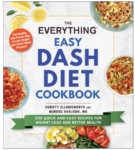
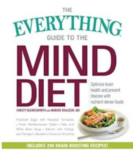
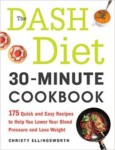
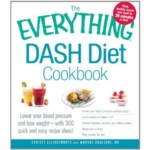
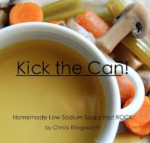
13 Responses to Low Sodium Spotlight: Umit Demir